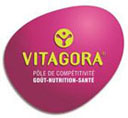The project
Context. In 2050, there will be twice as many elderly people aged more than 60, three times as many people aged over 70 and four times as many people aged over 80 than today. Aging is accompanied by changes that may affect food behaviour and limit the ability to adapt nutritional intake to nutritional requirements, which in turn may lead to malnutrition. Current recommendations are based on nutritional aspects, but don't take into account the sensory aspect of food.
Objective. The ambition of the AUPALESENS project was to show the efficacy of sensory levers to fight against and prevent malnutrition in senior citizens. The specific objectives were as follows:
- Dependence and malnutrition. Study the impact of dependence and of sensory, psychological, sociological and physiological factors on the nutritional status of senior citizens (survey conducted in + 500 senior citizens).
- Dependent senior citizens, consumers in their own right. To propose methods to develop foods meeting the expectations and preferences of dependent elderly people.
- Delegate meal preparation. Impact of meal dependence on the perception of the meal and how to recover control of one's meals.
- Content or context. Improve the taste of food or improve the context of the meal, what impact on food consumption in a care home?
Key numbers. The AUPALESENS project was funded by the ANR to the amount of 744 k€ for a total cost of almost 2 million euros. This project was also supported by the Vitagora and Valorial competitiveness clusters and by the Burgundy Regional Council. The 4-year project (2010 to 2013) brought together 7 public research institutions and 6 private partners. The AUPALESENS project was also more than 600 elderly people interviewed in the context of our studies and more than 100 experimental meals tested in care homes for the elderly.

Results. What is the impact of sensory, psychological and sociological factors (ability to perceive the taste of food, food preferences and aversions, difficulties to do the shopping, to cook or to eat…) on the nutritional status of senior citizens? What tools can we use to develop foods that meet the expectations and preferences of senior citizens? How can we improve meals for dependent senior citizens to increase eating pleasure the food consumption? All of the results of the AUPALESENS project were presented at the symposium of the 26th November 2013, in Dijon.
 |
 |
 |
 |